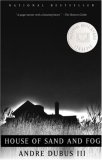Summary | Excerpt | Reading Guide | Reviews | Readalikes | Genres & Themes | Author Bio

The fat one, the radish Torez, he calls me camel because I am Persian and because I can bear this August sun longer than the Chinese and the Panamanians and even the little Vietnamese Tran. He works very quickly without rest, but when Torez stops the orange highway truck in front of the crew, Tran hurries for his paper cup of water with the rest of them. This heat is no good for work. All morning we have walked this highway between Sausalito and the Golden Gate Park. We carry our small trash harpoons and we drag our burlap bags and we are dressed in vests the same color as the highway truck. Some of the Panamanians remove their shirts and leave them hanging from their back pockets like oil rags, but Torez says something to them in their mother language and he makes them wear the vests over their bare backs. We are upon a small hill. Between the trees I can see out over Sausalito to the bay where there are clouds so thick I cannot see the other side where I live with my family in Berkeley, my wife and son. But here there is no fog, only sun on your head and back, and the smell of everything under the nose: the dry grass and dirt; the cigarette smoke of the Chinese; the hot metal and exhaust of the passing automobiles. I am sweating under my shirt and vest. I have fifty-six years and no hair. I must buy a hat.
When I reach the truck, the crew has finished their water and the two Chinese light new cigarettes as they go back to the grass. The Panamanians have dropped their cups upon the ground around their feet and Tran is shaking his head, and saying something in his language as he stoops to pick them up with his hands. Mendez laughs. He is almost as big as the radish and there is a long burn scar the color of sand upon one of his fat arms. He sees me looking at it as I drink my ice water and he stops his laughing, no longer does he even smile, and he to me says: "What you looking at, viejo?"
I drink from my cup and let him look at my eyes. His brothers have started to go back to work but now they stop to watch.
"Old maricon," says Mendez. He takes up his trash spear from the orange tailgate, but my eyes look at the burn again long enough for him to see. His face becomes more ugly than it already is and he yells something at me in his language and his teeth are very bad, like an old dog's. I don't give him rest from my eyes and so now he steps to me, yelling more, and I smell him, last night's wine and today's sweating of it, and now Torez is yelling louder than Mendez. Again it is in their mother tongue and it is over quickly because Mendez knows this crew can manage very fine without him, and he needs money for his sharob, his wine. He is goh, the shit of life. They are all goh.
"Vamonos, Camello." Torez moves by me and closes the tailgate. Tran is already working ahead of the truck while the smoking Chinese and the lazy Panamanians walk to the shade of the trees, pretending there is trash there.
I pull my sack over my shoulder and to Mr. Torez I say: "In my country I could have ordered him beaten."
"Si, Camello? In Mendez's country he would have beaten you himself."
"I was colonel, Mr. Torez. I was colonel in the Imperial Air Force. Do you know this, Mr. Torez? I was a colonel."
He hands to me my garbage spear and looks me in my eyes. His are gavehee, brown as coffee, like all his people, like my people also. But I see he has made up his mind about me.
He says to me, to Genob Sarhang Massoud Amir Behrani: "Okay, Colonel, but today I'm Senor General. Comprende?"
At the lunch hour, Torez drives the highway truck down to the trees and we all remove our paper sacks from where we left them in the tool chest this morning. We eat in the shade. Many times Tran eats with me and I do not mind this because the little Vietnamese speaks no English and I am able to do my work in the classified pages of the newspaper. In my country, I was not only a desk officer; I bought F-16 jets from Israel and the United States, and when I was a captain in Tehran, a genob sarvan, I worked on the engines with my own hands. Of course, all the best aerocompanies are here in California but in four years I have spent hundreds of dollars copying my credentials; I have worn my French suits and my Italian shoes to hand-deliver my qualifications; I have waited and then called back after the correct waiting time; but there is nothing. I have had only one interview and that was with a young girl in college who I believe the company was simply giving personnel experience. That was over two years past.
Excerpted from House of Sand and Fog by Andre Dubus III Copyright© 1999 by Andre Dubus III. Excerpted by permission of Vintage, a division of Random House, Inc. All rights reserved. No part of this excerpt may be reproduced or reprinted without permission in writing from the publisher.
Your guide toexceptional books
BookBrowse seeks out and recommends the best in contemporary fiction and nonfiction—books that not only engage and entertain but also deepen our understanding of ourselves and the world around us.